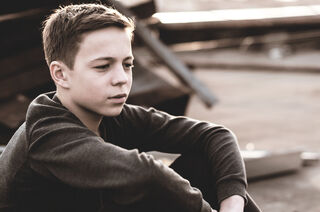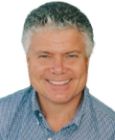Relationships
How People with Rough Childhoods Grow Up to Beat the Odds
One man's reflection on escaping the likelihood of a lousy life.
Posted February 14, 2018 Reviewed by Devon Frye

How bad does your childhood have to be before you know that you will likely have a lousy life as an adult and in all probability die young?
People actually study this sort of thing. So many people, in fact, that the question has been answered several times over, perhaps most definitively by the Adverse Childhood Experiences Study (ACES). The people doing that study worked up a definition of exactly how bad your childhood had to be before you pretty much became toast for the rest of your life.
They named 10 severe risk factors, like divorce, an alcoholic or drug-abusing parent, sexual molestation, violence at home as well as mental illness in a family member—and then followed thousands of children to see what the impact of these risk factors would be.
They found that if you had four or more of the risk factors, your chances for a happy life were low, and your chances for a lousy life were high.
These are just numbers, statistics, probabilities, and odds, but what the numbers show is that if you have a score of four risk factors or higher, the odds are stacked against you.
Of course, odds are just odds, and ACES did not assess the positive people and events that can save kids. If you get lucky, you can beat the house, and the long shot can come in. You just don’t want to bet the ranch on it. But I had to bet my life on it.
Through no choice of my own, I had an ACES score of eight. With a score of eight, the odds were so loaded against me that no one in their right mind would have bet on me to do very much in life. By rights, I should have become an alcoholic, suffered from major depression, been unable to earn a living and raise a family, and I probably should have died young, either by suicide or the ravages of alcoholism, depression, or drug abuse.
What were the strikes against me? I had a psychotic father and an abusive, alcoholic stepfather. My mother became an alcoholic and divorced twice. I saw my mother abused. I took care of myself when the adults were lost in their drinking. Male counselors at camp fondled me. I have two learning disabilities—ADHD and dyslexia—and I was sent away to boarding school at age 10.
I'm now 68 years old, and I’ve been married to the same wonderful woman since 1988. We have three grown children who are thriving, I am an M.D., a child and adult psychiatrist specializing in, naturally, learning disabilities. I am also the author of 20 books that have sold 2 million copies, including best-selling books on ADHD. I give talks all over the country and around the world. I see patients every day in my offices outside Boston and in New York City, and I am in the process of trying to expand my centers in order to reach more people. I am going strong with no desire to slow down.
Until I wrote my memoir, Because I Come from a Crazy Family: The Making of a Psychiatrist, it rarely dawned on me how unusual my life had been. After all, I was not watching it or studying it; I was living it. It’s hard to examine the wave as it's crashing you down on the shore.
I almost never thought about the odds I was actually beating every day. But when I looked back at my childhood and wrote about it, and when I looked at the studies of kids like me, I had to acknowledge the elephant in the room. How is it that I was where I was? What had happened? How on earth did I beat those odds?
In the memoir, I tell my story—my childhood and early training in psychiatry—and let the reader decide how it happened. But I will offer my own opinion here as to why I found the favorable winds that allowed me to win the race rather than capsize.
What saved me can be summed up in one word. That word is love—love in its many different faces and places, love by chance, love on purpose, love on the fly, brief love, lasting love, love that was too embarrassed to name itself, broken love that got repaired—every kind of love you can imagine.
It’s a pretty fair bet—indeed, it's a proven fact—that love is the biggest difference-maker life has to offer us searchers and sufferers. Thankfully, it's free and infinite in supply. It’s sad, though, how hard it can be to find sometimes, and how terribly afraid of love some people can be.
I invite you to speculate as to what has worked for you, what rules and tools helped you out most, and then see if what worked for me was what worked for you. The question of how a person overcomes the bad luck, injustice, mistreatment, prejudicial behaviors, deprivation, and random evil most people encounter while growing up—some more than others—perplexes and engages me every day in my work, and as I look back on my own life.
Beyond love, I have some other concrete answers, most of them obvious: Keep up with friends, learn how to forgive, get a dog (or a cat if you must), visit graveyards, walk outside around 3 a.m. and look upward, root for your favorite teams, and look at triumph and disaster and treat those two impostors just the same (thank you, Rudyard).
But I also feel endless amazement and humility at how mysterious and inexplicable the wondrous, happy outcomes can truly be, how unpredictable, how dumbfounding, how out-of-the-clear-blue-sky. I invite you to join me in marveling at that sky. The more of us who look at it, the more expansive it becomes.
Facebook/LinkedIn image: Yalana/Shutterstock




